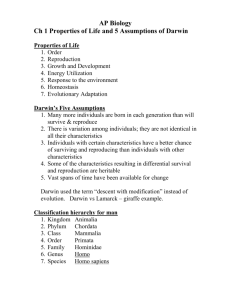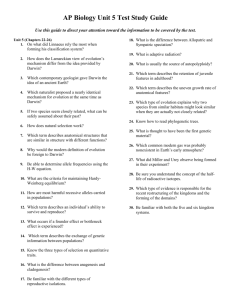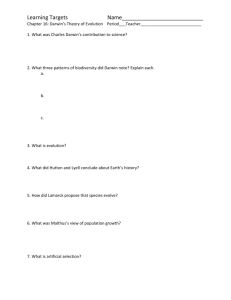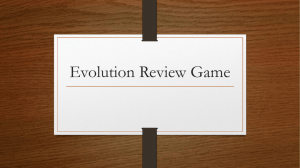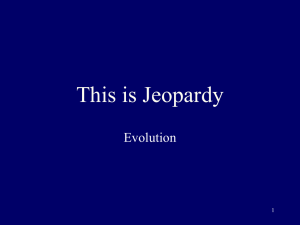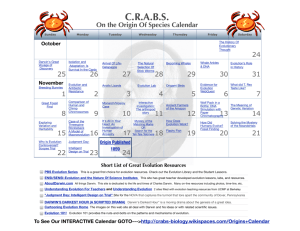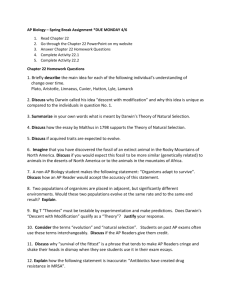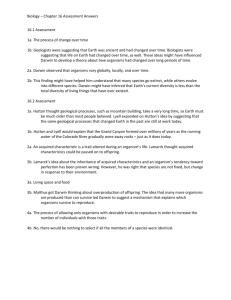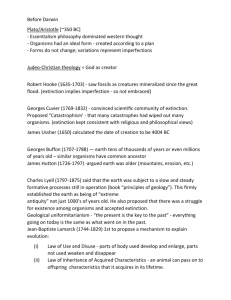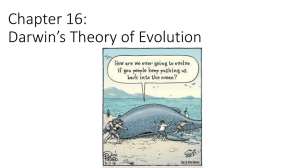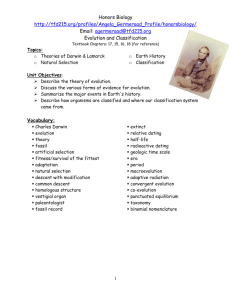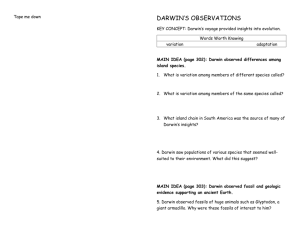GENERAL ZOOLOGY
advertisement
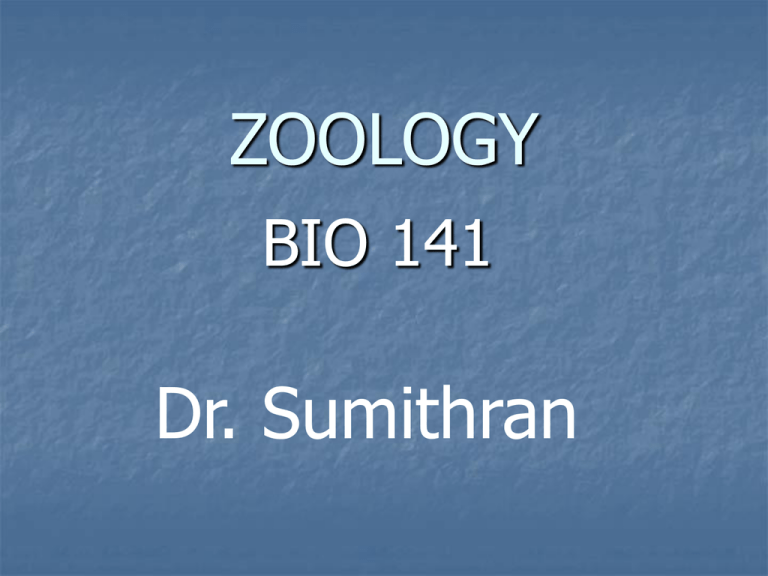
ZOOLOGY BIO 141 Dr. Sumithran http://people.eku.edu/sumithrans /Zoo/Home.html Introduction What is life? Introduction Difficult to define Therefore discuss properties of living systems Properties of Living Systems 1) Chemical Uniqueness Made up of large molecules MACROMOLECULES Four categories Nucleic Acids Proteins Carbohydrates Lipids Properties of Living Systems 2) Complexity and Hierarchical Organization One level builds on previous level Macromolecules Cells Tissue Organs Organ system etc Emergent Characteristics – Unique characteristics that appear at a given level of organization Properties of Living Systems 3) Reproduction Replacement of individuals in a population Types of Reproduction Asexual Sexual Properties of Living Systems 4) Possession of a Genetic Program Faithful transmission of traits – Heredity Information contained in Genes Specifically encoded in the DNA Properties of Living Systems 5) Metabolism Complex chemical processes that go on in cells – provide energy Two processes Anabolism – Building up reactions Catabolism – Breaking down reactions Properties of Living Systems 6) Growth / Development Changes that take place during the life of an organism Metamorphosis – The transformation that take place in post-embryonic stages Properties of Living Systems 7) Environmental Interaction Ecology – Study of interactions between organisms and their environment Organisms responding to stimuli from environment IRRITABILITY IMPORTANT BIOLOGICAL CONCEPTS AND PRINCIPLES DARWIN’S THEORY OF EVOLUTION Charles Darwin Galapagos Islands 1859 – Published “The Origin of Species” Major obstacle – Heredity not understood 5 major theories DARWIN’S THEORY OF EVOLUTION 1) Perpetual Change Living world is neither constant nor cyclic instead is constantly changing Fossil Evidence 99% of species that once lived on the planet now extinct DARWIN’S THEORY OF EVOLUTION 2) Common Descent All forms of life descended from a common ancestor through branching lineages PHYLOGENY DNA studies – Provide evidence DARWIN’S THEORY OF EVOLUTION 3) Multiplication of Species new species are produced by the splitting and transformation of older ones Process known as – Speciation DARWIN’S THEORY OF EVOLUTION 4) Gradualism Large differences that characterize different species, originate through the accumulation of small changes over a period of time Did not take place overnight – but over geological time DARWIN’S THEORY OF EVOLUTION 5) Natural Selection Explains why organisms are constructed the way they are To meet the demands of their environment CLASSIFICATION Developed by Linnaeus Categories of Animal Classification Kingdom - Animalia Phylum - Chordata Class - Mammalia Order - Primates Family - Hominidae Genus - Homo Species - sapiens The End Write on Cards Name Year in school Major, Minor, Emphasis Why are you taking this course? Name one thing you would like to learn about in this course Career goals… Hobbies, interests, anything cool!!!
